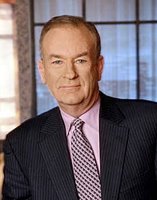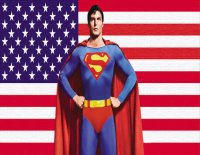The Darkening
I'm not much for Nostradamussing and I don't think that our current political troubles are symptomatic of a looming apocalypse - at least not in a biblical sense- but I will say this: never since before the Enlightenment has reason and rationality been less respected in Western society than it is now.
Why?
Because it has been replaced. Oh logic had a good run I suppose. But its day has come. There's a new kid in town. His name? Opinion. Sheer, unflustered opinon - the young gun, unbothered by stodgy old reason.
Opinon is brash, its manly, its exciting. Moreover it packs the emotional punch of belief. Why choose a cold, dry idea over an opinion - which is essentially an idea supported by the dramatic power of emotion? Through this inherent drama, this power of persuasion, opinion casts itself, implicitly, as loud truth, or at least as a sexy alternative, and increasingly, we accept this. We've reached the point where a factual statement can be made and an emotional reply or difference of opinion is considered an acceptable rebuttal. This mounting social emphasis on the value of opinion and essentially emotional arguments is a danger to the truth. Of course facts too can be twisted, something that straying from reason only exacerbates, and when even facts become polluted and fluid, reality and people's opinions of reality become alarmingly indiscernable... Truth still exists, to be sure. It's there somewhere. But without a compass we're at a loss to find it.
We can see the influence of this rational dimming in all of our media, which has steadily become flashier at the expense of hard news and objective reporting. We see it in the deepening cleavage of heavily made-up news anchors and in the spinning, multicolored logos that flash frentetically across the screen to annouce each 'action report' or 'info thunderbolt' or whatever buzzterm has been assigned to the segment.
As a result of the corporatization of the media (indeed the vast majority of the American media is now controlled by five or six supercorporations ) it becomes about what sells. Truth might be the steak but you don't sell the steak, you sell the sizzle. This is the great irony of privatization: while one would expect that private control of the news would free it from government influence and any poltical muddling of the facts, it in fact makes it a tacit complier to those in power by making it less concerned with the truth. Most news organizations simply take the news (that is poltical news) as it is handed to them by the administration, each adding the particular spin promoted by their ownership, and none offering a truly critical analysis of the information.
There is a great deal of talk about the importance of media objectivity when in fact the responsibility of the media is not to be objective, but to be critical. This does not call for the hyperbolic and politically motivated ravings of the usual talking heads, just as the term 'objectivity' does not call for the impotent and mindless information-conveyor-belt we so often see. What it means is an active analysis of information, with reports supplemented by independent sources. Indeed there is nothing independent about our news outlets, which either effectively censor themselves, as mentioned above, or are directly censored in their coverage of important issues such as Iraq. We are told that releasing such sensitive information would be a national security risk. Well, national ignorance is also a national security risk. Secrecy and discretion are all well and good in fighting a dirty war, but the widening gap between what the public knows and what those in power know is a grave threat to the integrity of our democracy, especially in a potentially eternal war like the loftily-named War on Terrorism (a title that, just like the "P.A.T.R.I.O.T Act", is a lingual masterpiece of Goebellian proportions).
There can be no democracy without an informed public because political accountability disappears in a fog of half-truths and outright concealment. Repeat: there can be no democracy without an informed public. In short, our media has failed us, and our appetite for hyperbole as media consumers has had very much to do with that failure. But hey, that's just an opinon.


